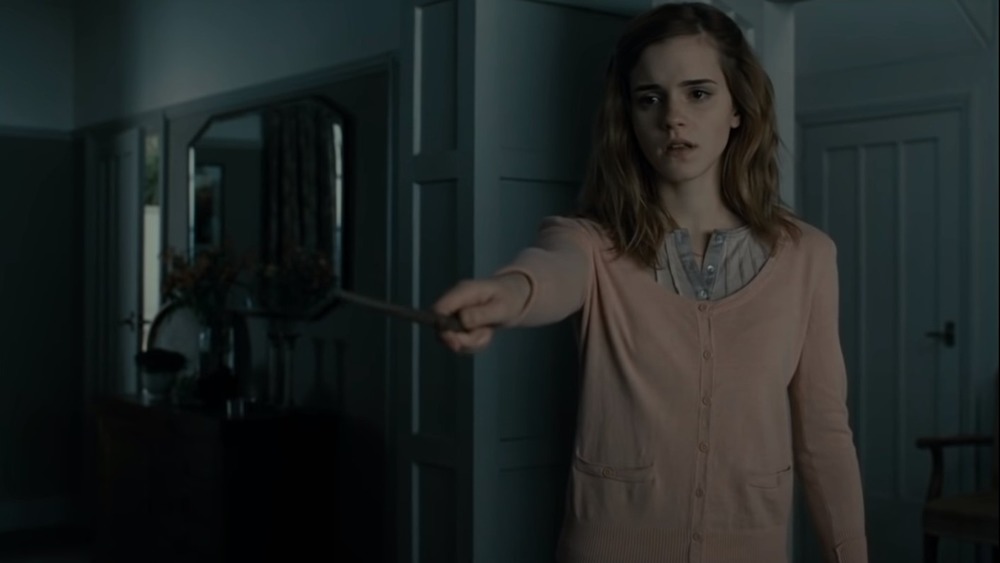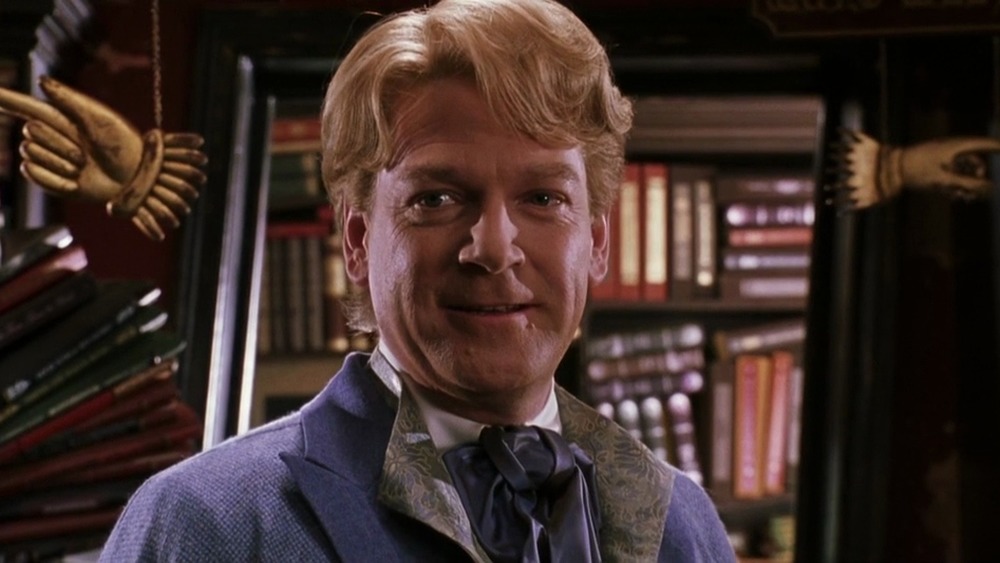The One Harry Potter Spell Fans Think Should Be An Unforgivable Curse
By the societal standards of almost any reader casually observing the wizarding world of Harry Potter, it's frankly astonishing that more curses aren't considered "unforgivable." From what we're told in the books, there are really just the three. You've got your Cruciatus Curse, which drops a metric ton of agony on its target. Then there's Imperius, the spell that turns folks into the caster's personal living marionettes. Finally, there's the ol' Killing Curse, Avada Kedavra, which Harry presumably lets kids cast on him at school fundraisers once he gets past his salad days.
And sure, torture, enslavement, and murder make for a pretty solid baseline in terms of what's morally off-sides. But aside from a dramatic adherence to the rule of threes, why stop there? Aren't there other magical actions that are just as ethically untenable? There are plenty of philosophical arguments to be made here; if it's unacceptable to torture someone, why is it seemingly "forgivable" to use the Avis charm, summoning a flock of birds to peck and claw at someone's skin? Was petrifying Neville not just another way of controlling his body and robbing him of personal agency? It just seems like wizard prosecutors would have a lot of wiggle room, that's all we're saying.
But there's one spell that strikes some fans of the series as an obvious and necessary fourth entry in the list of utterly contemptible acts. Wildly, it's one of the only charms with an entire political office dedicated to it. And if you can't remember which one it is, it's probably already too late for you.
The Obliviate spell does ... what was it again?
"Obliviate," shouted Defense Against the Dark Arts teacher — and absolute dreamboat — Gilderoy Lockhart at the top of Chamber of Secrets' third act, unaware that he was about to get the magical equivalent of a backfiring Elmer Fudd gun all up in his hippocampus. Thanks to Ron Weasley's busted-up wand, the spell doubled back on him, and Lockhart gave readers their first look at how uncomfortable magic could get.
The charm, as fans would go on to witness several times throughout the books and movies, is designed like a point-and-shoot version of a Gob Bluth forget-me-now. It wipes the memories of the target, with severe cases causing permanent, irreparable brain damage. On the heartbreaking side, the films would later go on to show Hermione Granger utilizing Obliviate to purge herself from her family's consciousness. For an even more sinister read, see above re: a middle-aged man trying to explode some twelve-year-olds' brains.
Potterheads on Reddit discussed at length the merits of making Obliviate unforgivable. "But the Ministry literally has a whole department of people that use Obliviate," user skulkarni2 said, an idea that user mp8815 called "the most realistic part" of Harry Potter. "You have a spell that's clearly as bad as other spells considered illegal, but it's one the government has a use for so it remains legal. Like that's just so real." For their part, user strawma_n jokingly offered the following: "Initially obliviate was an unforgivable curse. Someone used that curse and obliviated everyone who knew it was an unforgivable cure. So, no one remembered."
Even in a world full of socially acceptable, functioning love potions and an elementary school adjacent to a forest full of horse-sized spiders, you'd think that the potential to steal someone's actual mind would be a bridge too far, legally speaking. There is, of course, a logical possible explanation: maybe the Ministry of Magic meant to make Obliviate illegal. Maybe they just forgot.

